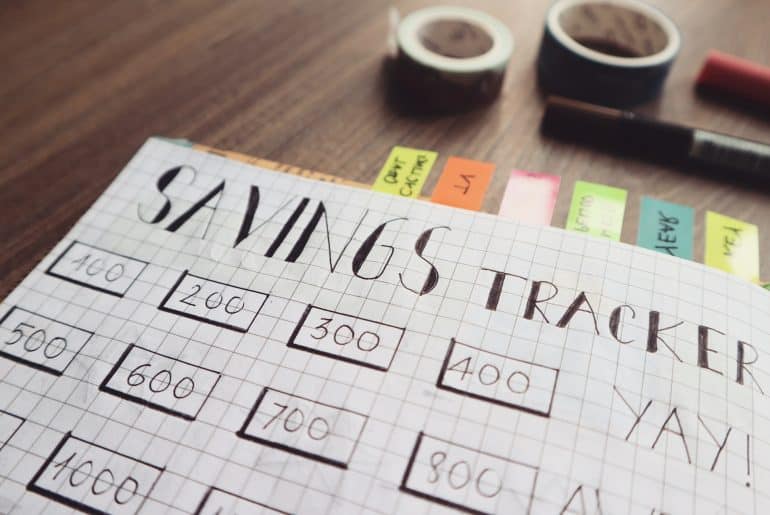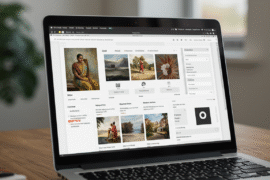This article may contain references to products or services from one or more of our advertisers or partners. We may receive compensation when you click on links to those products or services. Nonetheless, our opinions are our own.
The information presented in this article is accurate to the best of our knowledge at the time of publication. However, information is subject to change, and no guarantees are made about the continued accuracy or completeness of this content after its publication date.

Updated by Albert Fang
Everyone can implement a plan to be in control of their financial future, No matter their financial situation. For many this might seem like a daunting task, but with the right money management tips, making your money work for you can become second nature. Once you have a plan in place making adjustments throughout the course of time is manageable and less disruptive to your daily finances. Read on for financial planning and money management tips.
Know What You Want
Really knowing what you want from your finances today and in the future can be challenging. Taking some time to decide how much money you want to retire with and when you want to retire as well as how much money you want to have in your life to be comfortable between now and then, is essential. You can’t plan for what you don’t know.
Understand Your Financial Reality
One of the most impactful actions to be taken for financial planning and money management is first understanding your current financial picture. Many people don’t fully understand their financial situation and can find it hard to take the steps to comprehend the facts. Taking the time to get to know these basics will help lay the foundation for your personal financial plan.
Income
Being realistic about your gross and net income is one of the first steps to financial planning and money management. Creating a list of all of your income sources and what you “take home” from each of these sources will help you know what you are working with.
Expenses
You may have a pretty good idea of what you spend on bills such as rent/mortgage, utilities, car payments, auto insurance, etc., but it is easy to forget about all of those smaller expenses that consume your income each month. These might include groceries, gas, streaming apps, daily coffee on the way to work or even lunches. This is often how a budget looks great on paper and then somehow doesn’t seem to work as planned. These small items sneak in and gobble up bits of your income somewhat unseen. Being realistic about your expenses is vital to managing your money.
Debt
The debt category of your financial picture is one that people often try to avoid. Though you are likely aware of any substantial debt you have in the abstract, the actual numbers can seem overwhelming. Taking the time to really list all of your debts, big and small (even that small loan from your great uncle) is vital to beginning to plan your financial future. Also consider that debt is not a negative thing, so long as you manage it well, and work with the right lenders. For instance, you can get a home equity loan in Texas to consolidate several smaller debts and reduce the amount of your monthly budget that’s eaten up by interest alone. It’s a case of recognizing that the right type of debt can be empowering rather than restricting.
Pay Yourself First
You may have heard people say that it is important to pay yourself first. This can seem difficult to anyone who is financially challenged and on a tight budget, but in order to make any traction in your financial planning you do need to pay yourself before your bills. This doesn’t mean don’t pay your bills. This means that you should set aside some money each paycheck, even if it is a small amount, to go toward a savings and/or investment account. Starting to put money into your future is the only way you will reach your financial goals.
Investing in Your Future
While you can choose a savings option such as a traditional savings account (some earn nominal interest over time) or certificates of deposit (CDs), there are also a number of investment options available such as stocks, mutual funds, commodities (silver, gold, oil, etc.) and real estate. Take a little time to research the options to decide where you want to put the money that you pay yourself so that it works best for you.
The first step to gaining control over your finances is to act, regardless of your goals. Understanding your financial situation and implementing budgeting tools to both monitor and stay on track is essential. There are many tools available to help make the process easier. Selecting the best budgeting apps for your circumstance can provide you with the assistance needed on a daily basis and create good habits.

Reviewed and edited by Albert Fang.
See a typo or want to suggest an edit/revision to the content? Use the contact us form to provide feedback.
At FangWallet, we value editorial integrity and open collaboration in curating quality content for readers to enjoy. Much appreciated for the assist.
Did you like our article and find it insightful? We encourage sharing the article link with family and friends to benefit as well - better yet, sharing on social media. Thank you for the support! 🍉
Article Title: 7 Financial Planning & Money Management Tips For Everyone
https://fangwallet.com/2022/11/03/7-financial-planning-money-management-tips-for-everyone/The FangWallet Promise
FangWallet is an editorially independent resource - founded on breaking down challenging financial concepts for anyone to understand since 2014. While we adhere to editorial integrity, note that this post may contain references to products from our partners.
The FangWallet promise is always to have your best interest in mind and be transparent and honest about the financial picture.
Become an Insider

Subscribe to get a free daily budget planner printable to help get your money on track!
Make passive money the right way. No spam.
Editorial Disclaimer: The editorial content on this page is not provided by any of the companies mentioned. The opinions expressed here are the author's alone.
The content of this website is for informational purposes only and does not represent investment advice, or an offer or solicitation to buy or sell any security, investment, or product. Investors are encouraged to do their own due diligence, and, if necessary, consult professional advising before making any investment decisions. Investing involves a high degree of risk, and financial losses may occur including the potential loss of principal.
Source Citation References:
+ Inspo












































